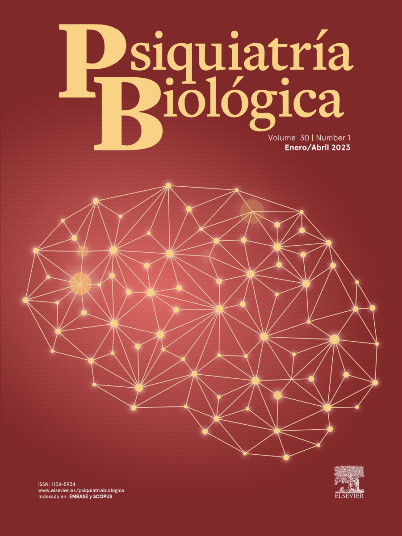La disfunción cognitiva en el trastorno depresivo mayor (TDM) abarca varios dominios incluyendo, pero no limitados, a la función ejecutiva, la memoria verbal y la atención. Por otra parte, la disfunción cognitiva es una manifestación residual frecuente en la depresión y puede persistir durante la fase de remisión de los síntomas afectivos y somáticos. Los déficits cognitivos también pueden impedir la recuperación funcional incluyendo la capacidad de recuperación laboral, social y familar. Los nuevos antidepresivos como vortioxetina parecen conseguir una importante mejoría en dominios cognitivos alterados en el TDM y superan el efecto antidepresivo a este nivel de los antidepresivos convencionales y los antidepresivos selectivos. Los objetivos generales de este artículo de opinión son evaluar críticamente los efectos de los antidepresivos disponibles, así como las nuevas dianas terapéuticas sobre la disfunción neurocognitiva en el TDM.
Cognitive dysfunction in major depressive disorder (MDD) spans multiple domains, including–but not limited to–executive function, verbal memory and attention. Moreover, cognitive dysfunction is a common residual manifestation in depression and may persist during the remission phase of affective and somatic symptoms. Cognitive deficits can also prevent functional recovery, including the ability to work, and social and familar recovery. New antidepressants such as Vortioxetine seem to achieve a significant improvement in the cognitive domains that are altered in MDD, thus providing additional benefits over conventional and selective antidepressants. The general objectives of this article are to critically assess the effects of available antidepressants and to discuss new therapeutic targets on neurocognitive dysfunction in MDD.






